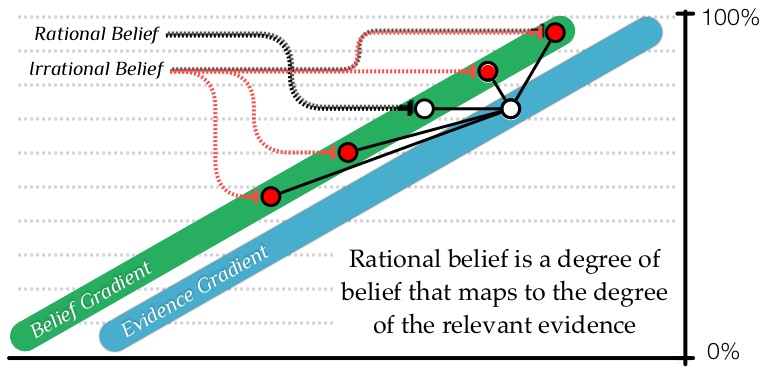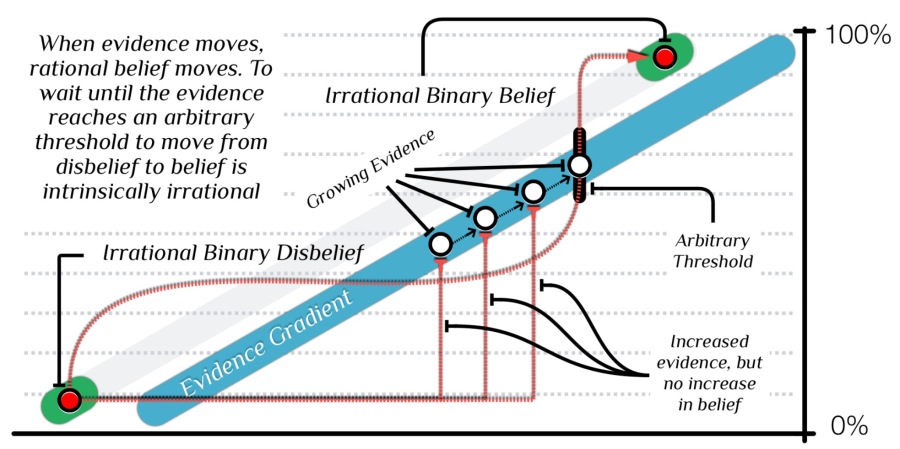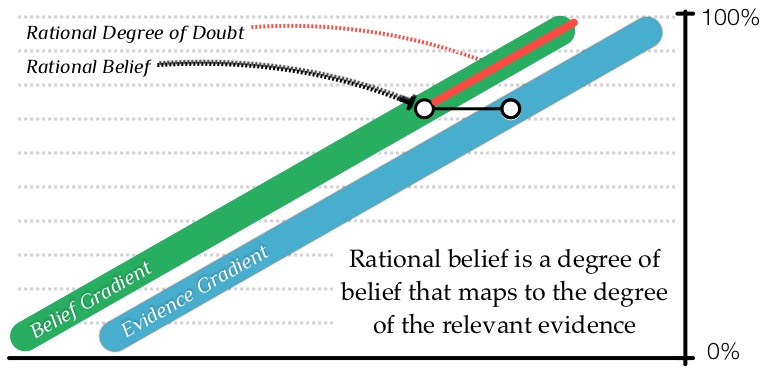 Imagine what might have happened if humans thousands of years ago, instead of ascribing every unknown cause of mysterious phenomena to a God or to gods, had refrained from any conclusion, and had let their curiosity lead them to explore the world. Instead of concluding without actual evidence that lightning reflected the anger of some God, they could have simply resisted their impulse to prematurely believe, and have made careful observations that might have led them to an understanding of they dynamics of electro-magnetism much earlier.
Imagine what might have happened if humans thousands of years ago, instead of ascribing every unknown cause of mysterious phenomena to a God or to gods, had refrained from any conclusion, and had let their curiosity lead them to explore the world. Instead of concluding without actual evidence that lightning reflected the anger of some God, they could have simply resisted their impulse to prematurely believe, and have made careful observations that might have led them to an understanding of they dynamics of electro-magnetism much earlier.
We still have that impulse to prematurely ascribe causes to the phenomena we experience. And those causal explanations very often require an unsubstantiated spiritual realm with spiritual causes that can be invoked without much risk of falsification by scientific inquiry. Ali bumps into Martha leading to marriage, and their favorite God, perhaps not the same God, is invoked as the cause. Is it not irrational to hold to supernatural explanations until we discover natural explanations for phenomena we encounter? Is it not far more honest to simply refrain from prematurely concluding X is the cause when there is insufficient evidence for X? And is not rational belief a degree of belief that maps to the degree of the relevant evidence?
There are so many things about our reality we can not yet explain. And we all have an emotional drive to know the explanation. This is a good thing in many ways. This is what drives scientific curiosity. But there is a danger. This same drive for an answer compels us to place high confidence in a particular conclusion when the evidence is far to weak to justify that conclusion. This is both very human and very irrational.
However, we are not inextricably enslaved to this irrationality. We can change. The following are steps we can take to develop a more rational process of assessing questions, and to construct a healthy web of beliefs weighted to the degree of the relevant evidence:
- An acknowledgement of our inclination to invoke easy though unsubstantiated causes for things we do not understand.
- A focused effort to honestly assess the candidate causes of unexplained phenomena.
- A careful mapping of our degree of confidence in a particular candidate cause to the degree of the evidence pointing to that cause.
- A willingness to constantly revisit our beliefs, and to make adjustments as the balance of evidence fluctuates.
These steps will not make us perfect thinkers. But they will make us both honest and better thinkers.
ADDITIONAL NOTES:
This chapter is similar in many ways to Chapter #25 which answers “Isn’t it sensible to believe in God if we have no better answer to the deep questions about life?”
Revisiting other chapters on rational belief may also be of benefit to readers. These include Chapters #20, #21, #22, #23, #24, and #28. Useful graphics from those chapters are posted below to whet your appetite.
- The mapping of the degree of belief to the degree of the evidence.

-
The irrationality of an arbitrary evidentiary threshold for belief

-
The absurdity of absolute certainty and requirement of doubt


